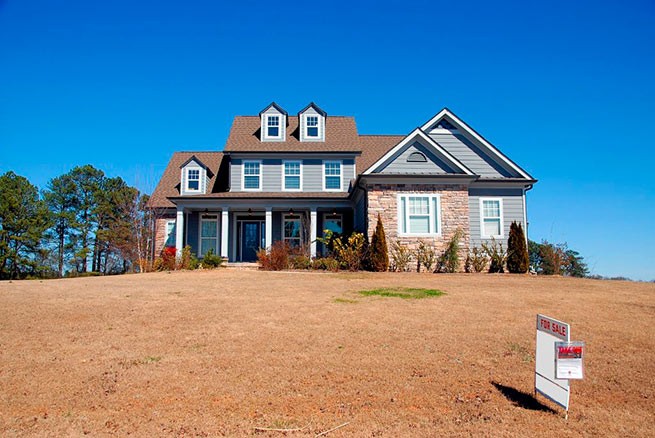Access to the real estate market for those who want to become the owner of their first home, i.e. who is buying it for the first time has become more difficult than ever. However, the tight housing market is not ideal for property owners either.
The cost of buying a home relative to the cost of renting is at its highest level since at least 1996. According to CBRE analysis, the average monthly payment on a new mortgage is 52% higher than the average apartment rent. The last time this figure looked inadequate was before the housing market collapse in 2008. But even then, in the second quarter of 2006, it reached 33%, notes the Wall Street Journal.
Theoretically, the cost of buying and renting should be approximately the same, says Matt Vance, head of multifamily research at CBRE. While landlords benefit from rising home prices, they also put more money into their homes than renters for purposes such as renovations and renovations.
What changed
According to the Wall Street Journal, from 1996 to mid-2003,the average purchase and rental costs were approximately the same, But after the global financial crisis, low interest rates and an oversupply of housing meant that in the 2010s. purchasing became on average 12% cheaper than renting. Today’s high real estate values reflect the skyrocketing cost of debt: Interest rates on 30-year mortgages are as high as 8%, and high home prices following the lockdown have boosted the value of home ownership.
Someone currently taking out a 30-year mortgage on a $430,000 home with a 10% down payment would pay about $3,200 a month, which is 60% more than if they bought the same home in three years. back. Rents rose 22% over the same period, although this growth is still moderately faster than inflation overall in the United States.
“Shadow demand”
Rising house prices are making it difficult for renters to put together a 10% deposit, let alone afford the rising cost of a mortgage. “There’s a lot of shadow demand for housing: a lot of first-time homebuyers waiting on the sidelines for the settlement system to kick in,” Odeta Koushi, deputy chief economist at First American Financial Corporation, told the Wall Street Journal.
A price collapse would restore market equilibrium, but this is unlikely unless there is a severe recession. Those who purchased their home during a period of low interest rates secured cheap financing: About 80% of mortgages issued in the US have interest rates below 5%. This incentivizes homeowners to stay put by limiting the supply of homes for sale.
On paper, these owners may appear to be benefiting from the current situation, but they also face costs. They can’t move easily, and the decline in home prices due to record prices may not be worth it given higher mortgage rates.
Limited supply on the rental market
Housing is unaffordable for many renters Landlords can usually increase rent. However, the supply of rental housing is not that tight, and a glut of newly built apartments is keeping rents down. Demand from renters is also weaker than during the pandemic, as most people planning to move have already done so in the past two years.
The American mortgage finance company Fannie Mae estimates that the vacancy rate for multifamily housing in the United States will reach 6.25% in 2024, exceeding the 15-year average of 5.8%.
This will hit institutional investors who have poured billions of dollars into American rental real estate in recent years. Apartment rental stocks are also underperforming. Since homebuying premiums returned in early 2021, shares of AvalonBay Communities and Equity Residential are down 6% and 18%, respectively, while the S&P 500 is up 8%.
In a troubled U.S. housing market, even one that should be designed specifically for owner-occupiers, it may be that only lifelong renters are getting what they want, the Wall Street Journal concludes.







More Stories
EU employment record: Greece "stuck" in a low position
“Bonus” of 300 euros for the long-term unemployed
Turkish tourists choose Samos for their holidays